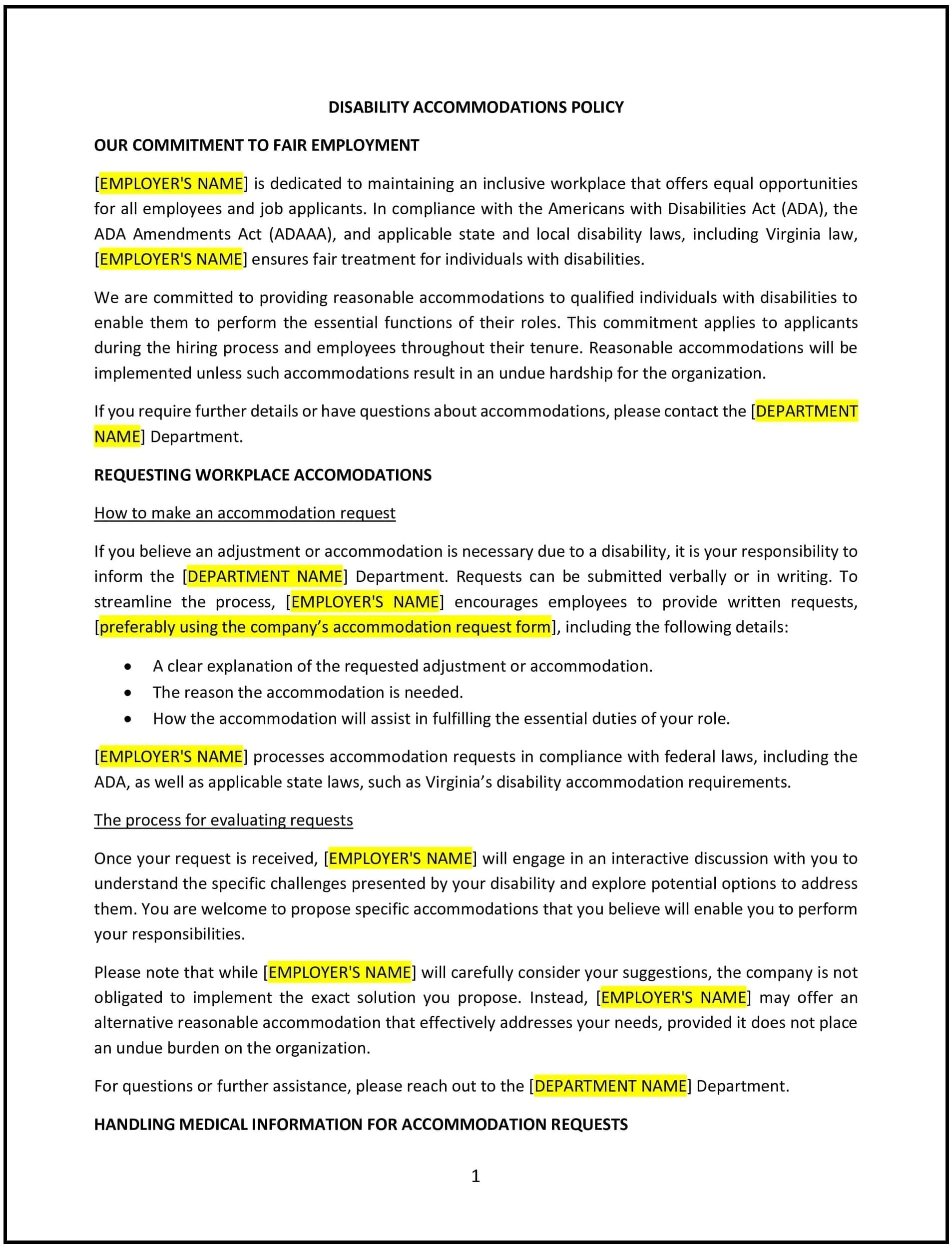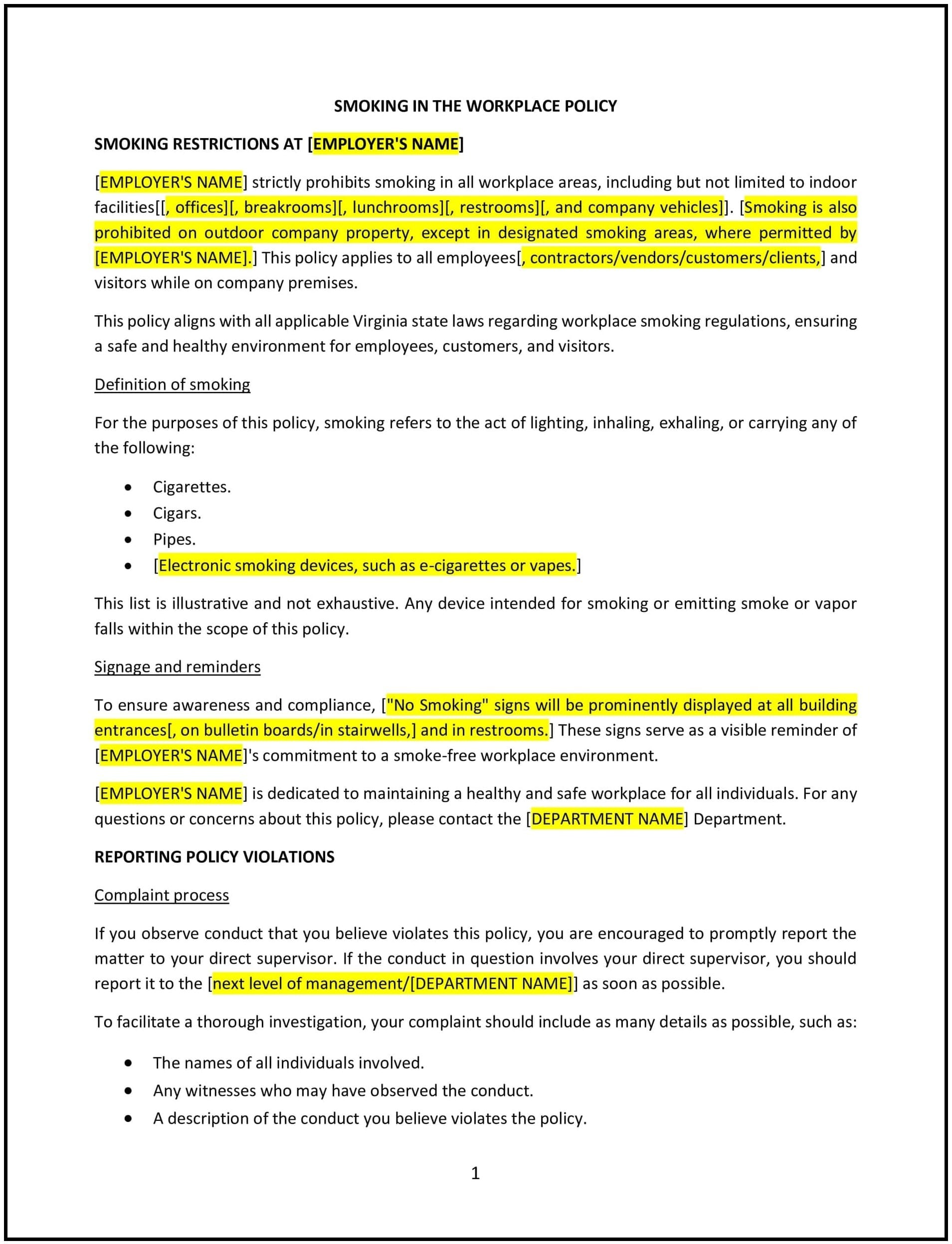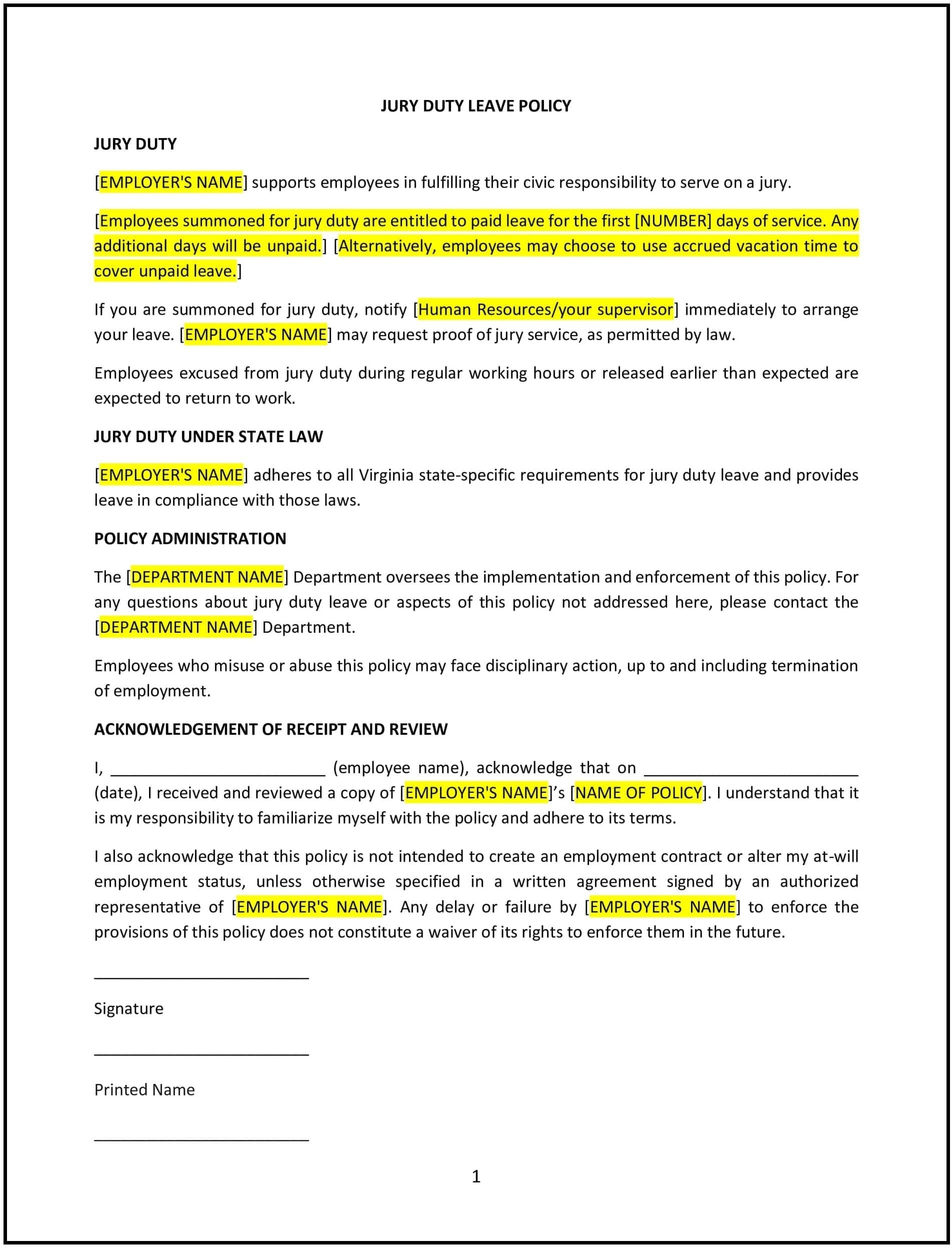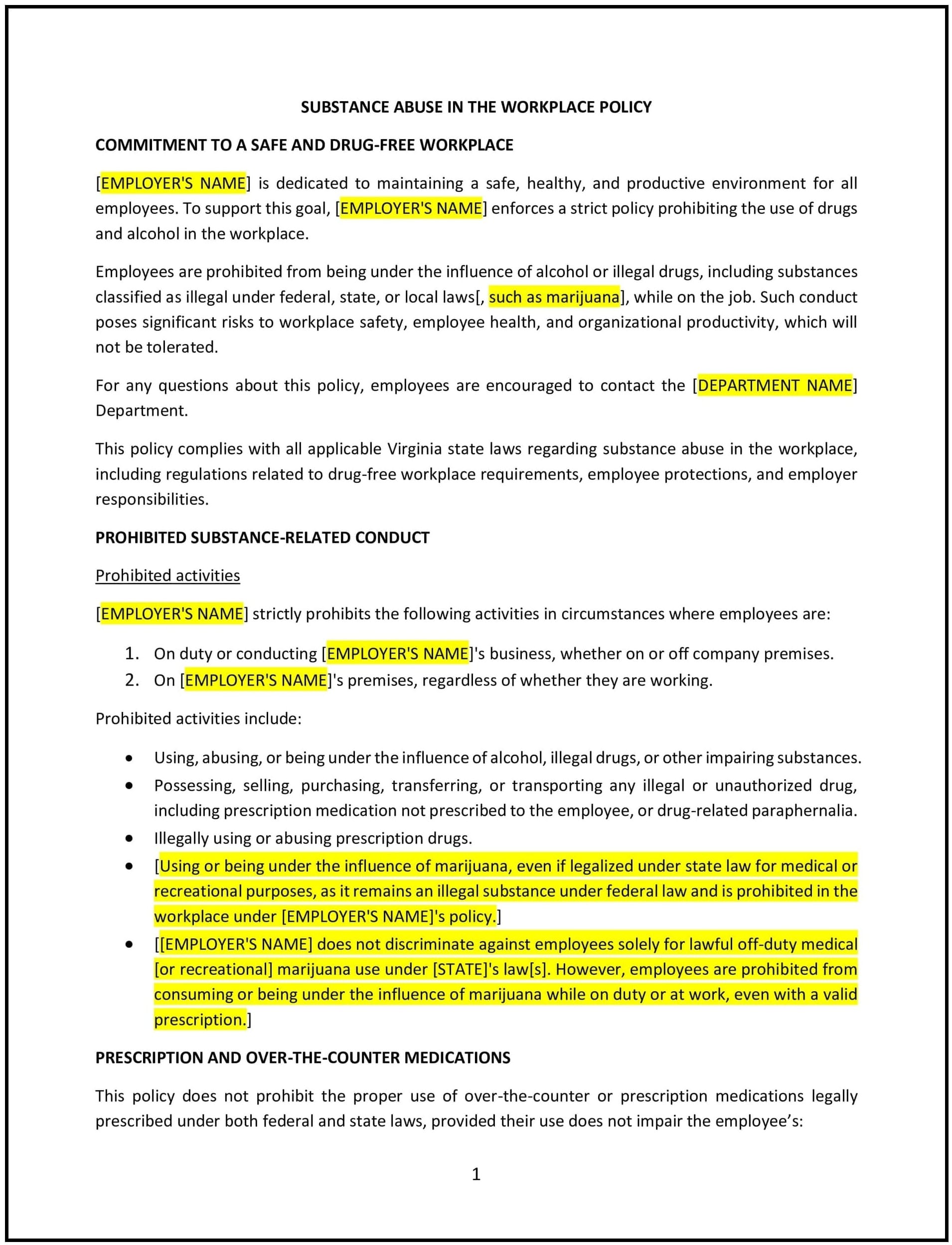Disability accommodations policy (Virginia): Free template
Got contracts to review? While you're here for policies, let Cobrief make contract review effortless—start your free review now.

Customize this template for free
This disability accommodations policy is designed to help Virginia businesses provide necessary accommodations to employees with disabilities in accordance with the Americans with Disabilities Act (ADA) and Virginia state law. The policy outlines how employees can request accommodations, how businesses will assess and provide those accommodations, and the steps involved in ensuring a workplace that is accessible and inclusive for all employees.
By adopting this policy, businesses can create a more inclusive environment, reduce legal risks, and improve employee satisfaction and retention by ensuring that all employees have equal access to the resources they need to perform their jobs effectively.
How to use this disability accommodations policy (Virginia)
- Define the scope of accommodations: The policy should specify the types of accommodations that are covered, such as changes to work schedules, adjustments to workspaces, or providing assistive technologies. It should also identify the specific disabilities that the policy is designed to support, ensuring that it is inclusive and comprehensive.
- Outline the request process: The policy should provide a clear and confidential process for employees to request accommodations. Employees should know how to submit a request, whether they need medical documentation, and the timeframe within which they can expect a response.
- Determine the assessment process: The policy should outline how each accommodation request will be evaluated. This may include assessing the employee’s needs, consulting with medical professionals, and considering the company’s ability to provide the requested accommodation without undue hardship.
- Set a timeline for providing accommodations: The policy should specify a reasonable timeline for providing accommodations after a request is made, ensuring that employees receive timely support without unnecessary delays.
- Address alternative accommodations: If the requested accommodation cannot be provided, the policy should outline alternative solutions and how those will be communicated to the employee. The goal should always be to provide an effective solution that supports the employee’s ability to perform their job.
- Protect confidentiality: The policy should emphasize that all accommodation requests and related medical information will be kept confidential and shared only with those who need to know in order to provide the accommodation.
- Ensure compliance with Virginia state and federal laws: The policy should ensure compliance with all relevant state and federal laws, including the ADA, the Virginia Human Rights Act, and other applicable regulations that protect employees with disabilities.
- Review and update regularly: Periodically review and update the policy to ensure it is compliant with Virginia state laws, federal regulations, and any changes in company operations. Regular updates will help ensure the policy stays relevant and effective.
Benefits of using this disability accommodations policy (Virginia)
This policy offers several benefits for Virginia businesses:
- Promotes inclusivity and diversity: By providing accommodations for employees with disabilities, businesses promote an inclusive and diverse workforce, helping to attract and retain top talent from all backgrounds.
- Reduces legal risks: Complying with state and federal regulations related to disability accommodations helps businesses avoid legal liabilities, such as lawsuits or claims of discrimination.
- Enhances employee satisfaction and retention: By ensuring that employees with disabilities have the resources and support they need to succeed, businesses can improve employee morale, job satisfaction, and retention.
- Increases productivity: Providing the right accommodations enables employees with disabilities to perform at their best, enhancing overall productivity and reducing the likelihood of performance-related issues.
- Strengthens company reputation: Companies that are known for being inclusive and providing necessary accommodations are seen as responsible, ethical employers, improving their reputation both internally and externally.
- Complies with legal requirements: The policy helps businesses ensure they are compliant with the ADA and Virginia state law, avoiding potential penalties or reputational damage related to non-compliance.
Tips for using this disability accommodations policy (Virginia)
- Communicate the policy clearly: Ensure that all employees are aware of the disability accommodations policy and know how to request accommodations. Include the policy in the employee handbook, review it during onboarding, and provide periodic reminders to employees.
- Encourage open dialogue: Create an environment where employees feel comfortable discussing their accommodation needs. Encourage employees to reach out for assistance when necessary and assure them that their requests will be handled confidentially and respectfully.
- Provide ongoing support: Ensure that employees who receive accommodations are regularly checked in with to assess whether the accommodations are working effectively. Be open to making adjustments if needed to better meet the employee’s needs.
- Monitor compliance with the policy: Regularly review how the accommodation process is being handled within the organization to ensure that it is in compliance with the policy and any legal requirements. Document all accommodation requests and resolutions for accountability and transparency.
- Review and update regularly: Periodically review the policy to ensure it remains compliant with Virginia state laws, federal regulations, and any changes in company operations. Regular updates will help keep the policy relevant and effective.

Defines smoking restrictions and designated areas to maintain a healthy, smoke-free environment in accordance with Virginia laws.

Explains leave entitlements and procedures for employees called to serve on a jury in Virginia.

Establishes guidelines to prevent and address substance abuse, ensuring a safe and compliant work environment in Virginia.